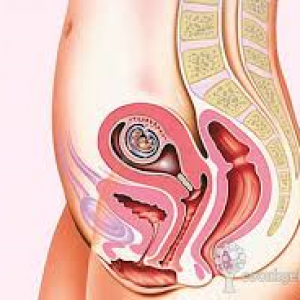Gülsüm-Umut
Baby Community Member
- Katılım
- 29/6/17
- Mesajlar
- 548
Constipation is a condition in which defecation becomes less frequent and difficult for various reasons. Constipation in adults is a disease that can be easily recognized and the cause of which can be determined and treated. However, constipation in babies is noticed long after the discomfort starts, as babies cannot express the problem. For this reason, constipation in babies can continue for a long time if the parents are not noticed, and this affects the health of the baby.
What are the Symptoms of Constipation in Babies?
Babies cannot express their digestive complaints like adults. For this reason, parents should follow the bowel movements of their babies in order to be able to notice constipation. Some symptoms point to the problem of constipation. We can list these symptoms as follows:
1- Abdominal stiffness or visible swelling
2- Refusal to feed and loss of appetite
3- Restlessness and crying
4- Stool is hard and lumpy
5- Straining and crying during defecation
6- Anus cracks and bleeding due to straining
The above findings indicate constipation. If there are findings, it is necessary to consult a doctor as soon as possible and start appropriate treatment.
Causes of Constipation in Babies
What causes constipation in babies? This is one of the most frequently asked questions by parents. Constipation is very rare in the first 6 months, which is usually fed only with breast milk. This is due to the digestive nature of breast milk. After the sixth month, there is an increase in the problem of constipation with the initiation of additional food. Constipation in babies can be related to nutrition as well as due to various health problems. In general, the reasons can be listed as follows:
1- Cow's milk (Cow's milk is not recommended until 1 year old)
2- Foods containing rice
3- Foods low in fiber (white bread, pasta, etc.)
4- Insufficient fluid intake
5- Infections
6- Presence of chronic diseases affecting the digestive system
7- The baby's getting away from the conditions he is used to and getting stressed
What is Good for Constipation in Babies?
Generally, constipation can be resolved by finding and eliminating the condition that causes constipation. However, it may be necessary to apply to a health institution for the determination of the underlying cause and the treatment of the symptom. However, the problem of constipation in babies can be solved with some methods that can be applied at home. These methods are as follows:
1- Make sure your baby gets plenty of fluids. If your baby is younger than 6 months and is breastfed, there is no need to take any other fluids. For babies older than 6 months, it is recommended to drink up to 900 ml of fluid daily.
2- After starting complementary foods, you can give your baby up to 100 ml of freshly squeezed fruit juice. Fruit juices have a laxative effect and prevent constipation.
3- It is possible to relieve constipation by giving weight to foods rich in fiber.
4- Make your baby move like riding a bicycle. Such movements can also activate the intestines, which can facilitate digestion.
5- Massage your baby's belly with soft and circular movements with one hand.
6- You can give your baby a warm bath. A warm bath can also trigger bowel movements.
7- You can apply glycerin to the anal area. It can relieve defecation.
In case of persistent constipation problems despite the application of the above methods, it is absolutely necessary to consult a doctor.
How to Prevent Constipation in Babies?
1- If possible, feed your baby exclusively with breast milk for the first 6 months. Do not give any additional food during this period.
When switching to complementary foods for
2- to 6-month-old babies, start with foods that are easy to digest. At first, a single meal of additional food will be sufficient. Let your baby get used to the food.
3- Include foods with high fiber content among additional foods. For example; Foods such as grain products, beans, peas, apples are rich in fiber.
4- Make sure your baby is getting enough fluids.
5- Give your baby a daily abdominal massage. You can also do physical activities such as pulling your legs towards the abdomen, moving them like riding a bike.
